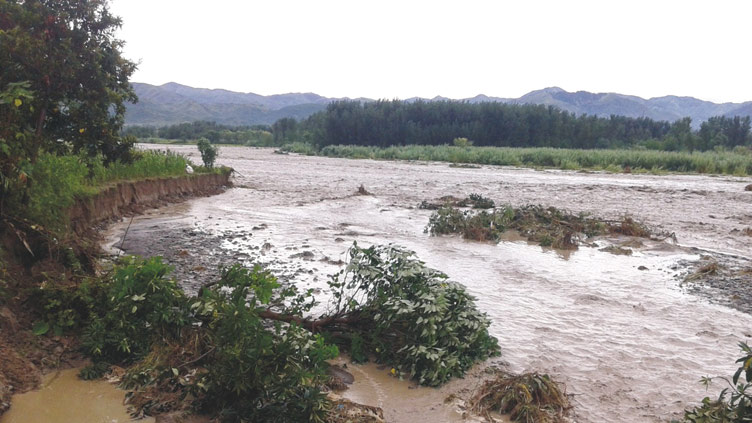Climate Crisis: Gilgit-Baltistan grapples with flooding

Pakistan
Various main roads and link roads have been damaged by high water levels
GIlGIT (APP) — The heatwave in Gilgit-Baltistan has accelerated the melting of glaciers, causing water levels to rise in rivers and streams, and resulting in flooding in various areas.
According to sources, various main roads and link roads have been damaged by high water levels.
The Karakoram Highway has been damaged in Phusgo, Gojal, and nearby hotels and government buildings have been affected.
The meteorological department has warned of potential glacial lake outbursts, posing a threat to downstream settlements.
Affected people have demanded that the government take immediate measures to prevent further damage from river erosion.
Gilgit-Baltistan is home to over 2800 glacier lakes, many of which are located in the Karakoram and Himalayan mountain ranges.
Among these lakes, dozens are formed thread when glaciers melt and collect in natural basins, often behind barriers of rock and ice.
The lakes are prone to outbursts, known as Glacial Lake Outburst Floods (GLOFs), which can occur when the water level rises too high and the barrier fails.
GLOFs can release massive amounts of water often in a matter of hours causing catastrophic flooding downstream.
The Attabad Lake is a prime example of a glacier lake that poses a significant threat of outbursts. In 2010, a GLOF from Attabad Lake caused widespread flooding and damage in the downstream Hunza Valley.
Other glacier lakes in Gilgit-Baltistan, such as the Badswat Ishkomen Ghezer and Sishper Hunza posed a similar threat of outbursts caused damage to public properties and Karakuram High Way (KKH).
The region’s glacier lakes are vulnerable to climate change, which is causing temperatures to rise and glaciers to melt at an accelerated rate.
This increases the risk of GLOFs and highlights the need for monitoring, mitigation, and adaptation strategies to protect downstream communities and infrastructure.


